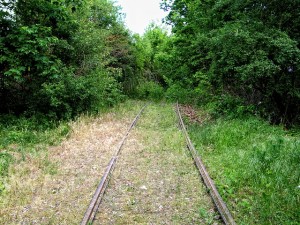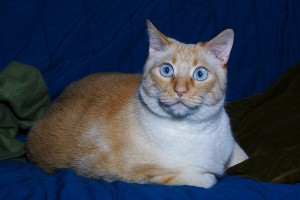dike
[noun]
[de dijk, de dij-ken] ![]()
 Last Saturday I ended up in an Amsterdam bar in the Jordaan called ‘Café Nol‘ (on Westerstraat), together with Laura. They play sing-along music with many Dutch classics (such as any André Hazes song 😉 ). At one point we heard the song ‘Groot hart’ (‘Big heart’) by Dutch band ‘De Dijk’. It’s a nice song (with interesting Dutch idiom too) and I thought I’d share it with you.
Last Saturday I ended up in an Amsterdam bar in the Jordaan called ‘Café Nol‘ (on Westerstraat), together with Laura. They play sing-along music with many Dutch classics (such as any André Hazes song 😉 ). At one point we heard the song ‘Groot hart’ (‘Big heart’) by Dutch band ‘De Dijk’. It’s a nice song (with interesting Dutch idiom too) and I thought I’d share it with you.
The band ‘De Dijk’ has been around since 1981 and is part of Dutch rock/pop heritage. Read more about the band here.
You can use ‘dijk’ figuratively in the expression: ‘Een dijk van een [noun]’: a great [noun]. Example: ‘De Dijk is een dijk van een band’: ‘De Dijk’ is a great band. Or: ‘Hij is een dijk van een kerel’: he’s a great guy. Note that the [noun] represents a person or (group of persons).
Lyrics
Dokter, kunt u even komen? Breng uw beste medicijn
(Doctor, can you please come (visit me)? Bring your best medicine)
(Ik) heb er nu al jaren last van, ook al doet het niet echt pijn
(I has been bothering me for years, even though it does not really hurt)
Maar ik val voor alle vrouwen, alle vrouwen op dit bal
(But I have a thing for (/ I fall for) all women, all women at this ball (dance) [Note the use of ‘vallen voor iemand’: to fall for somebody (amorously).])
Da’s veel te veel om van te houden, dokter, ik heb een spoedgeval
(That’s way too much to love, doctor, I have an emergency [Note that here the text deviates from the original lyrics that say ‘Het is een spoedgeval’: it is an emergency. This would also be the more common thing to say. A common way to shorten ‘dat is’ in speech is ” da’s “.])
Ik heb een groot hart, dit hart is zo groot
(I have a big heart, this heart is so big)
Het wordt nog mijn dood, dit hart is zo groot
((If it goes on like this) it will be my death, this heart is so big [Note the use of the word ‘nog’: here it captures the feeling of ‘If it goes on like this’ or ‘If I don’t watch out then…’])
Ik heb een groot hart
(I have a big heart)
Neem een ochtend als vanochtend, vroeg op want de zon die scheen
(For example, a morning like this morning, (I) rose early because the sun was shining [Lit. ‘Neem een ochtend als vanochtend’ translates as ‘take a morning like this morning’.])
Opgeruimd loop ik naar buiten, en ik zie een vrouw, ik denk, alleen
(With a clear head I go outside, and I see a woman, I think, alone [Note the use of the adjective ‘opgeruimd’ (cleaned up / organized). I think here he refers to his state of mind, but it could also mean that everything is generally in order (for him).])
Ik dacht dat ze naar me lachte, dus vrolijk lach ik naar haar terug
(I thought she smiled at me, so cheerfully I smile back at her [Note that ‘to smile’ in Dutch is ‘glimlachen’. The verb ‘lachen’ is used for laughing in general, however ‘lachen naar’ takes on the same meaning as ‘glimlachen naar’. ‘Laughing at somebody’ becomes ‘iemand uitlachen’ in Dutch.])
Maar die boom was haar vriend, dokter, komt u vlug?
(But that big guy turned out to be her boyfriend, doctor, (can you) please come quickly? [Note the use of the word ‘boom’: ‘tree’ in Dutch. Also slang for a tall strong guy, e.g. ‘een boom van een kerel’: a very tall and strong guy.])
Ik heb een groot hart, dit hart is zo groot
(I have a big heart, this heart is so big)
Het wordt nog mijn dood, dit hart is zo groot
((If it goes on like this) it will be my death, this heart is so big)
Ik heb een groot hart
(I have a big heart)
Dokter straks is het weer lente, als u begrijpt wat ik bedoel
(Doctor, soon it will be spring, if you know what I mean)
Al dat moois langs ‘s heren wegen, en dan krijg ik dat gevoel
(All those beautiful things along this country’s roads, and then I get that feeling [Note that with ‘al dat moois’ the singer refers to women. A rare example of the use of the genetive case in Dutch is ‘des heren wegen’, oftened shortened to ” ‘s heren wegen”. Literally, ‘roads of the lord’, this generally refers to the public roads (often motor ways) in the Netherlands.])
Loop driemaal daags onder een auto
(When walking, I get hit by a car three times a day [Lit. ‘onder een auto lopen’ translates as ‘to walk under a car’. Note the use of ‘driemaal daags’. This construct works in general for ‘multiple times a day’, e.g. ‘Neem tweemaal daags deze pil in’: takes this pill twice a day. However, it is much more common to say ‘drie keer per dag’.])
Ik stoot dagelijks vijf keer mijn kop
(I hit my head five times a day [Here ‘dagelijks’ means ‘every day’.])
Da’s veel te veel om van te houden, zuster, weet u daar iets op?
(That’s way too much to love, nurse, do you have a solution for that? [In the original lyrics, the singer sticks with ‘doctor’. Note the use of ‘ergens iets op weten’: to have a solution for something (or: to know how to deal with something.])
Ik heb een groot hart, dit hart is zo groot
(I have a big heart, this heart is so big)
Het wordt nog mijn dood, dit hart is zo groot
((If it goes on like this) it will be my death, this heart is so big)
Ik heb een groot hart
(I have a big heart)
Things to remember from this DWOTD
– Dutch band ‘De Dijk‘;
– A common way to shorten ‘dat is’ in speech is ” da’s “;
– The meaning of ‘nog’ in ‘Het wordt nog mijn dood’;
– The difference between ‘lachen’ and ‘glimlachen’;
– The colloquial meaning of the noun ‘boom’;
– The meaning of ” ‘s heren wegen”;
– The use of ‘daags’ and ‘dagelijks’;
– How to use the construct ‘ergens iets op weten’.

 There are three words for ‘end’ in Dutch: ‘eind’, ‘einde’ and ‘end’. Both ‘eind’ and ‘end’ can also be used in the meaning of ‘(a) distance’, see the Examples below.
There are three words for ‘end’ in Dutch: ‘eind’, ‘einde’ and ‘end’. Both ‘eind’ and ‘end’ can also be used in the meaning of ‘(a) distance’, see the Examples below. Surprise, the DWOTD is back 🙂 After 2,5 months of chasing building constructors I have almost shooed the last one away (but not without delivering what was agreed 😉 ). And I realized that one shouldn’t wait with starting one’s new life until all external issues have been resolved. So the DWOTD is back. Time to start practicing your Dutch again!!
Surprise, the DWOTD is back 🙂 After 2,5 months of chasing building constructors I have almost shooed the last one away (but not without delivering what was agreed 😉 ). And I realized that one shouldn’t wait with starting one’s new life until all external issues have been resolved. So the DWOTD is back. Time to start practicing your Dutch again!! Now that The Netherlands are definitely out of the European (football) Championship tournament, there’s a lot of ‘I told you so’ and ‘I knew (they would not make) it’. An informal way to say ‘I told you so’ or ‘I (just) knew it’ in Dutch is: ‘zie je nu wel’. You may also hear other expressions with similar meaning, such as: “Ik zei het je toch!” or “Ik wist het wel!”.
Now that The Netherlands are definitely out of the European (football) Championship tournament, there’s a lot of ‘I told you so’ and ‘I knew (they would not make) it’. An informal way to say ‘I told you so’ or ‘I (just) knew it’ in Dutch is: ‘zie je nu wel’. You may also hear other expressions with similar meaning, such as: “Ik zei het je toch!” or “Ik wist het wel!”. ‘Uitzicht’ typically implies a decent and unobstructed view, often panoramic. The noun ‘zicht’ can be used in the same way, however it is more often used for ‘view’ or ‘sight’ in general (like ‘visibility’), and does not by definition imply the view is unobstructed (something to keep in mind when choosing a hotel 😉 ).
‘Uitzicht’ typically implies a decent and unobstructed view, often panoramic. The noun ‘zicht’ can be used in the same way, however it is more often used for ‘view’ or ‘sight’ in general (like ‘visibility’), and does not by definition imply the view is unobstructed (something to keep in mind when choosing a hotel 😉 ).